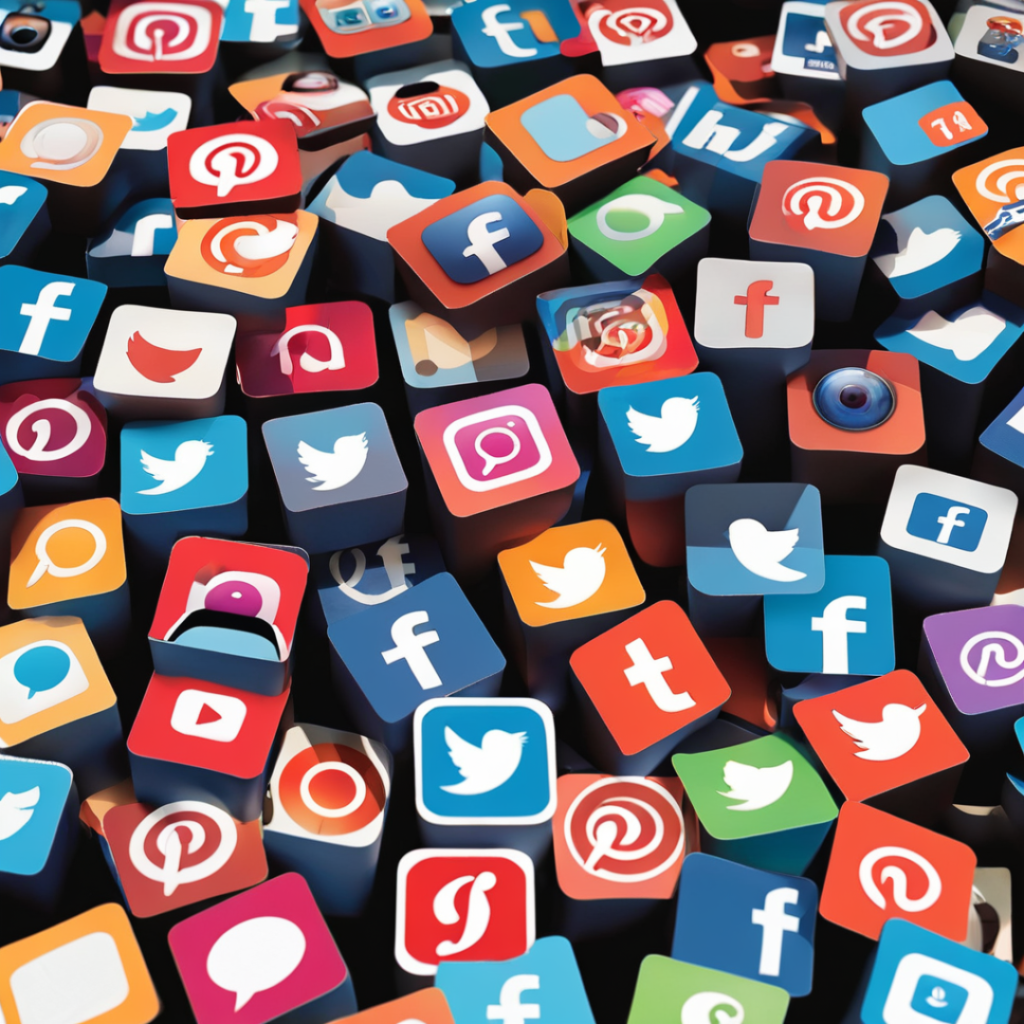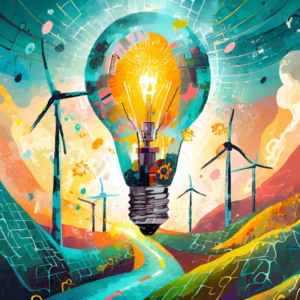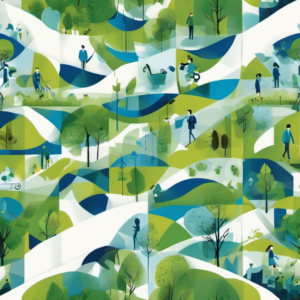Social Media Impact in pop culture refers to the cultural products and trends that are popular and influential within a society at a given point in time. This includes phenomena like viral internet memes, slang, fashion, music genres, celebrities, movies, and more. Pop culture often originates from youth culture and permeates into mainstream culture as it gains widespread popularity. It evolves rapidly, especially in today’s digital age.
Social media refers to online platforms and apps that allow users to create profiles, share content, and network with other users. This includes sites like Facebook, Instagram, Twitter, TikTok, YouTube, Reddit, and more. The key feature of social media is that it facilitates participatory culture by empowering everyday people to engage with, remix, and shape popular culture in real-time. This is a major shift from the past where most pop culture was broadcast one-way from mainstream media and entertainment companies.
The rise of social media over the past 15 years has had a monumental impact on pop culture. By giving everyone a platform and voice, social media has democratized culture and accelerated the pace at which trends emerge and spread. Pop culture moments now go viral globally in a matter of days, if not hours. Social media has also blurred the lines between consumer and creator. Overall, it has fundamentally changed how pop culture is created, consumed, and participated in.
- Read More about The Impact of Social Media on Pop Culture: From Hashtag Activism to Celebrity Culture : Click Here
Viral Trends and its Social Media Impact
Social media has become the prime engine for viral trends that shape pop culture. Platforms like TikTok and Twitter are optimized for bite-sized content that can spread rapidly through shares and engagement. This allows pop culture moments like memes, viral dances, hashtag campaigns, and more to emerge organically and gain huge traction online.
For example, TikTok has given birth to countless viral dance challenges where users film themselves performing choreographed dances to trending music. Dances like the Renegade, Mood Swing, and Savage have spread like wildfire across TikTok and other platforms through millions of user-created videos. Lighthearted viral memes have also flourished on TikTok and Twitter, often gaining mainstream recognition through widespread sharing.
Beyond entertainment, social media has empowered activism and social justice campaigns to gain momentum under trending hashtags. Following the murder of George Floyd in 2020, the #BlackLivesMatter hashtag amplified protests and calls for reform. Hashtag activism demonstrates the ability of social platforms to rapidly spread social and political messages.
Overall, social media’s decentralized nature has shifted pop culture trends away from being dictated top-down by media gatekeepers. Now viral moments emerge more democratically from users themselves, reflecting the speed and zeitgeist of online culture.
Influencers Social Media Impact
Social media has given rise to a new class of celebrities known as influencers. These are individuals who have amassed massive followings on platforms like Instagram, TikTok, and YouTube. In many cases, influencers have more sway and impact over their audience than traditional mainstream celebrities.
The key to an influencer’s success is being able to connect authentically with their followers. By consistently creating content centered around a niche like fashion, travel, or comedy, influencers foster a sense of intimacy and friendship with their audience. This makes their followers more receptive to sponsored content and branded partnerships.
Top influencers can earn millions from brand sponsorships and affiliate marketing. For example, celebrities like Kylie Jenner or Cristiano Ronaldo can make over $1 million from a single sponsored Instagram post. Lesser known influencers often earn money by partnering with brands to promote products or services to their followers.
Influencers have disrupted the celebrity landscape by gaining fame entirely through social media. Unlike traditional celebrities who rose to fame via movies, TV, music, or sports, influencers derived their celebrity status from amassing a large social media following. In some ways, their success depends even more on maintaining an ongoing two-way relationship with their audience.
- Learn more about Unveiling the Influence: How Social Media Reshapes Pop Culture : Click Here
Music Industry Disruption
Social media has significantly disrupted the traditional music industry model. Platforms like YouTube, SoundCloud, and TikTok allow musicians to directly distribute their music to a massive audience without the need for record labels, radio play, or music video channels.
Whereas hits used to be heavily manufactured and promoted by record labels, now viral hits can emerge organically from social media. Unknown artists can upload their songs and gain huge popularity if their music resonates with listeners and gets shared widely. Platforms like TikTok have created a new paradigm for music discovery based on short viral clips creating Social Media Impact.
Some artists have leveraged this direct distribution model to gain fame without traditional industry support. Justin Bieber was discovered from his YouTube videos. Lil Nas X used TikTok to make “Old Town Road” a global smash hit in 2019. Social media allows musicians to build committed fan bases and gain visibility on their own terms. Record labels are no longer all-powerful gatekeepers in the internet age.
The social media music revolution has disrupted how record labels scout talent and promote songs. Artists have much more independence and creative control. However, social media analytics and virality metrics now influence how music gets produced and marketed. The system has shifted but still allows social media trends to dictate tastes rather than nurturing artists. Overall, the music landscape has been radically altered by the rise of social media and direct distribution.
Celebrity-Fan Relationships
Social media provides much more direct access between celebrities and their fans. Platforms like Twitter and Instagram give fans an inside look at a celeb’s personal life and a chance to interact with them directly. This cultivated sense of closeness and “authenticity” is very appealing to fans.
Celebrities will often use social media to make announcements, post behind-the-scenes footage, share personal photos, respond to fans, and sometimes even rant or rave. This raw, unfiltered window into a celeb’s world helps fans feel like they have a real relationship with the person behind the public persona and Social Media Impact on Pop Culture.
Some celebrities have amassed massive social media followings that rival or exceed their actual fame. For example, social media stars like the Kardashians are some of the most-followed people in the world. Their main claim to fame is being influencers and personalities on Instagram.
This more direct celeb-to-fan pipeline cuts out much of the previous gatekeeping and barriers. Fans don’t have to rely on press releases or paparazzi photos to get a glimpse of their favorite stars – they can just check their Instagram. This also allows celebs to shape their own narrative and branding.
However, sometimes this direct access goes too far. Celebrities have struggled with issues like leaked personal photos, hacking, and harassment from fans online. Social media has made it harder for celebs to keep aspects of their lives private. The constant demands from fans for content and interaction can also be taxing. Still, social media has become a required part of being a celebrity in the modern world.
- Article on Navigating the Future : Promises and Challenges of AR/VR Technology : Click Here
Journalism and News creating Social Media Impact
Social media has had a major impact on journalism and the news industry. Platforms like Twitter and Facebook have become key places where news breaks and is discussed in real-time. However, this has also led to issues around misinformation and the rise of “citizen journalism.”
Some of the key effects on journalism include for Social Media Impact on Pop Culture:
– The ability for news to spread rapidly on social platforms, sometimes even faster than traditional news outlets can report on it. Breaking news events often unfold first on social media.
– Journalists now use platforms like Twitter to share stories, engage with readers, find sources, and monitor trends. Many view social media as an essential reporting and promotion tool.
– Citizens can report on events as they happen and share updates, photos, videos that may be used by news outlets. This “citizen journalism” can democratize news, but also risks spreading unverified information.
– Misinformation and “fake news” travels quickly on social media. Without fact checking or editorial oversight, false stories and conspiracy theories can gain traction.
– Some argue social media has weakened traditional journalistic gatekeeping and oversight. Anyone can share information, making it harder to distinguish facts from fiction.
– News outlets feel pressure to attract clicks and shares on social media, which may lead to more sensationalized headlines and reporting. “Clickbait” has become a common tactic.
Overall, social media has fundamentally changed how news is produced, spread, and consumed. While it has provided new opportunities for journalists and citizens, it has also created major challenges around misinformation that continue to disrupt the news landscape.

Marketing, Advertising and Social Media Impact on Pop Culture
Social media has become a major force in marketing and advertising. Platforms like Facebook and Instagram provide businesses with huge, targeted audiences ripe for promotion.
Influencer marketing has exploded as a way for brands to leverage social media celebrities to promote products. An influencer endorsement or sponsorship post can reach millions of engaged followers. Influencers are seen as more authentic and trustworthy than traditional ads.
The vast data troves collected by social media platforms allow for hyper-targeted advertising. Companies can zero in on specific demographics and interests to serve up relevant sponsored posts and ads. Everything users do on social media provides more signals to refine this targeting.
Powerful advertising tools like Facebook’s Lookalike Audiences build custom audiences similar to a brand’s existing customers. This can help efficiently expand reach. Advertisers also utilize retargeting to follow users with ads across the web after they’ve shown interest.
Overall, social media marketing provides brands with direct access to consumers and influencers. Targeted ads and sponsorships based on data profiling and demographics are core components of social media advertising strategies. The marketing potential is immense, but so are risks like privacy violations.
- Interesting Read Unlocking the Potential : Guide to AR/VR Technology and Its Current Applications : Click Here
Toxic Culture’s Social Media Impact
Social media has enabled some concerning aspects of online culture to proliferate, including trolling, public shaming, and privacy invasions.
The anonymity afforded by social media platforms emboldens some users to engage in trolling – deliberately posting inflammatory, offensive or menacing content to provoke reactions and upset others. Trolls often gang up to target and harass individuals, which can have devastating psychological effects. Platforms have struggled to moderate extreme trolling.
Social media has led to the rise of public shaming, where users gang up to attack or embarrass someone over perceived transgressions. Minor mistakes or controversial statements can quickly blow up into massive scandals. Public shaming can result in disproportionate backlash and destroy careers and reputations. The permanence of content online exacerbates the problem.
The boundaries between private and public information have become blurred on social media. Users often share personal details without realizing how widely visible they may become. Platforms collect expansive data on users, raising privacy concerns. Individuals have little control over how their information spreads or gets utilized by companies. High-profile data breaches have underscored the privacy risks.
Mental Health
Social media has been linked to increased rates of anxiety, depression, and loneliness, especially among teens and young adults. The constant pressure to maintain an online persona and seek validation via likes and comments can negatively impact mental health.
Specific mental health issues associated with social media use include:
- Anxiety – Social media can heighten anxiety due to the pressure to cultivate a perfect online image. The fear of missing out (FOMO) on what others are posting can also lead to anxiety. Platforms are designed to keep users continuously scrolling and engaged, which can exacerbate anxious feelings
- Depression – Studies show a correlation between time spent on social media and higher rates of depression. Seeing highly curated versions of other people’s lives can lead to feelings of inadequacy. Cyberbullying and negative online interactions also contribute to depression. The comparisons and envy fueled by social media create feelings of depression.
- Loneliness – While social media provides opportunities to connect, it often involves more superficial relationships. An over-reliance on online friendships can detract from meaningful in-person socializing, leading to feelings of isolation and loneliness. The constant consumption of other people’s posts can exacerbate loneliness instead of alleviating it.
- FOMO – The fear of missing out drives much social media use, as users constantly check platforms to keep up with what friends, celebrities, influencers, and others are posting. The feeling that others are living better or more exciting lives can be psychologically draining, fueling FOMO. Social media activates FOMO by providing a carefully curated glimpse into the lives of others
Outcome
Social media has had a profound impact on pop culture in recent years. As platforms like Facebook, Twitter, Instagram, YouTube, and TikTok have exploded in popularity, they have fundamentally changed how trends emerge and spread, how celebrities and influencers interact with fans, and even how pop music is created and promoted.
Some of the major points we covered include:
– Viral trends like memes, dance challenges, and hashtag activism now spread at lightning speed across social media. Platforms like TikTok are optimized for creating and sharing bite-sized pop culture moments.
– Social media has allowed influencers to amass huge followings and gain celebrity-like status. In some cases, influencers have more sway over their audience than traditional celebrities. Brand sponsorships are a major part of the influencer economy.
– Musicians utilize platforms like YouTube and Soundcloud to directly distribute their music, bypassing traditional labels and media gatekeepers. Hits can emerge organically from social media, rather than being pushed out by record labels.
– Social media has disrupted industries like journalism, PR, marketing, and entertainment. It provides a more direct line between creators, celebrities, and the audience. However, it has also caused issues like misinformation, privacy concerns, and toxic culture.
As social media continues to evolve in the future, we can expect it to become even more immersed into pop culture. New technologies like augmented and virtual reality may transform social media into even more immersive experiences. More direct creator-to-fan relationships through platforms like Patreon will emerge. However, concerns over mental health, privacy, and misinformation will also grow. Overall, social media seems poised to only expand its influence over pop culture in the years ahead.




